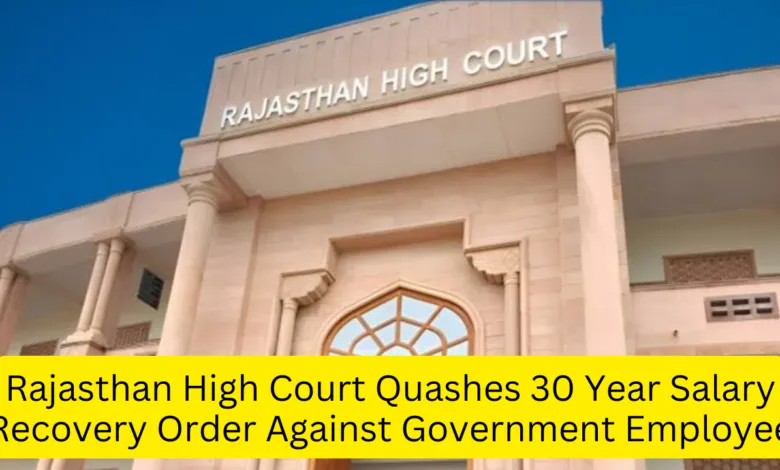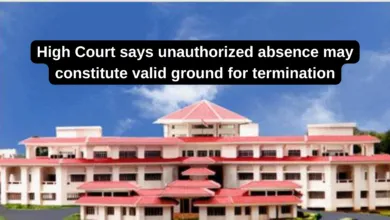
The Jodhpur bench of the Rajasthan High Court has set aside a recovery order issued by the state’s finance department against a government employee who had received an excess salary for nearly 30 years due to an error made by the department.
Court’s Observation
The court, in its judgment, noted that the employee had not misled the department in order to receive the higher salary. The error was solely the result of a mistake on the part of the finance department. Referring to the Supreme Court’s decision in State of Punjab & Ors. v Rafiq Masih (White Washer) & Ors. (2015), Justice Vinit Kumar Mathur emphasized that the employee’s case fell squarely within the parameters established by the Supreme Court.
In the Rafiq Masih ruling, the Supreme Court outlined specific situations in which salary recoveries from employees who had mistakenly received excess payments were not permissible. One of these situations involved cases where the excess payment had been made for more than five years prior to the recovery order.
Justice Mathur’s Ruling
Justice Mathur highlighted that the employee in this case had not engaged in any misrepresentation or concealment, either through action or omission, that led to the higher salary. The court held that the mistake was entirely on the part of the finance department, and the employee had no role in receiving the excess salary.
The case involved a petition filed by the employee challenging the State Government’s recovery action, which was initiated on the grounds that an administrative error had resulted in the excess salary payment.
State Government’s Argument
The State Government argued that the excess salary was paid to the petitioner as a result of a bona fide error and that, as a general legal principle, any excess amount paid to an employee could be recovered. However, the court disagreed with the State’s position.
Court’s Disagreement with the State
The court noted that the excess payments had been made over a period of 30 years, which clearly exceeded the five-year limit mentioned in the Rafiq Masih judgment. The high court cited the relevant passage from Rafiq Masih, which states:
“It is not possible to postulate all situations of hardship which would govern employees on the issue of recovery, where payments have mistakenly been made by the employer, in excess of their entitlement. Be that as it may, based on the decisions referred to hereinabove, we may, as a ready reference, summarise the following few situations, wherein recoveries by the employers, would be impermissible in law:… (iii) Recovery from the employees, when the excess payment has been made for a period in excess of five years, before the order of recovery is issued.”
High Court’s Final Decision
In light of this legal precedent, the high court concluded that the error was entirely the department’s responsibility. The court ruled that the State’s decision to initiate recovery was unsustainable and set aside the recovery proceedings.
The court also directed the government to refund any amounts that had already been recovered from the employee, along with interest, thereby fully allowing the petition.

